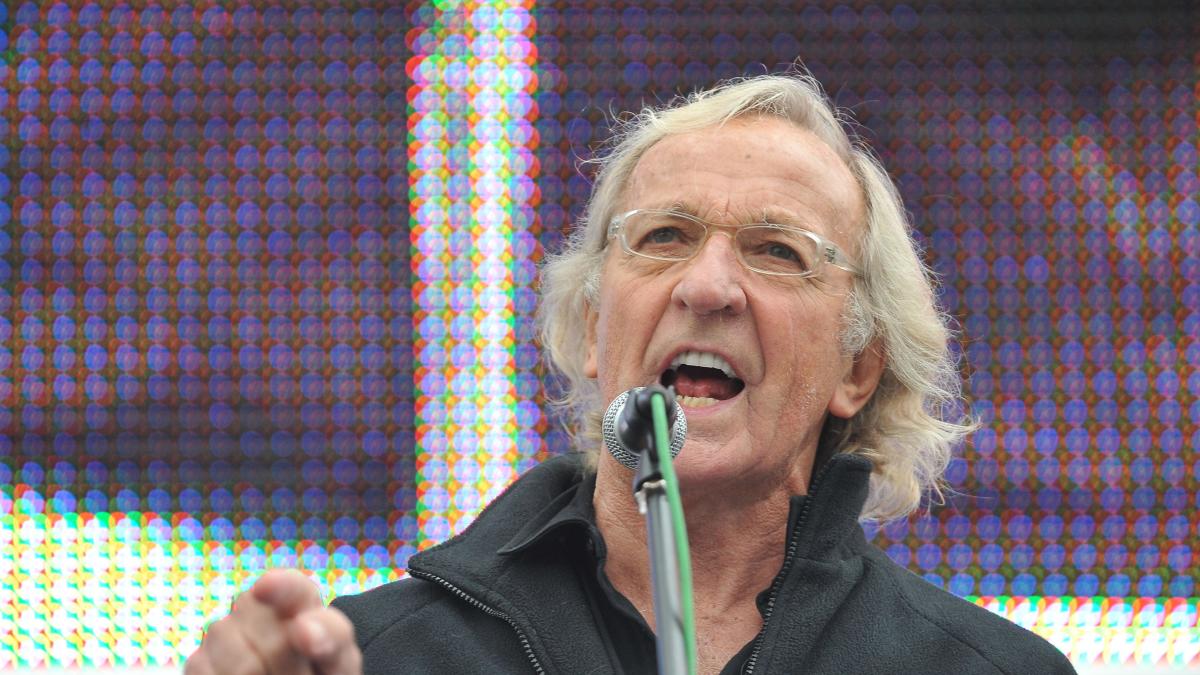John Pilger (84), journalist, an activist, documentary maker and a legend for many all news reporters and news analysts, passed away, Saturday, December 30. His family announced his death, “It is with great sadness the family of John Pilger announce he died yesterday 30 December 2023 in London aged 84. His journalism and documentaries were celebrated around the world,” they said, adding, “but to his family he was simply the most amazing and loved Dad, Grandad and partner. Rest In Peace.” This article, that may be erad here, outlines his historic contribution to the field of journalism, a profession that has increasingly been under attack for its inability to withstand corporate and state pressures.
Pilger was known for his hard-hitting exposés on the sheer human cost of empire, from the wars in Vietnam, Cambodia, and Iraq, to Western democracies’ systematic repression of their own working classes. His cinema documentaries include ‘Year Zero: The Silent Death of Cambodia’, ‘Breaking the Silence: Truth and Lies in the War on Terror’, ‘The War on Democracy’, ‘Palestine is Still the Issue’, and ‘The Coming War with China’.
“Every journalist, even though they may not know it, owes a debt to John Pilger,” Going Underground host Afshin Rattansi told RT (Question more) on Sunday, calling the award-winning filmmaker “one of the greatest journalists in all of history.” Born in Australia, Pilger has been described as dversarial, feisty and uncompromising, drawing praise and respect from people across the ideological fence.
As his own web page describes Pilger was born and grew up in Bondi, Sydney, Australia. His website confirms that he launched his first newspaper at Sydney High School and later completed a four year cadetship with Australian Consolidated Press. “It was one of the strictest language courses I know,” he says. “Devised by a celebrated, literate editor, Brian Penton, the aim was economy of language and accuracy. It certainly taught me to admire writing that was spare, precise and free of cliches, that didn’t retreat into the passive voice and used adjectives only when absolutely necessary. I have long since slipped that leash, but those early disciplines helped shape my journalism and writing and my understanding of moving and still pictures.”
Like so many of his Australian generation, Pilger and two colleagues left for Europe in the early 1960s. He has been mostly based in the UK since 1962. According to Pilger’s official website:
“They set up an ill-fated freelance ‘agency’ in Italy (with the grand title of ‘Interep’) and quickly went broke. Arriving in London, Pilger freelanced, then joined Reuters, moving to the London Daily Mirror, Britain’s biggest selling newspaper, which was then changing to a serious tabloid.
He then became chief foreign correspondent and reported from all over the world, covering numerous wars, notably Vietnam. Still in his twenties, he became the youngest journalist to receive Britain’s highest award for journalism, Journalist of the Year and was the first to win it twice. Moving to the United States, he reported the upheavals there in the late 1960s and 1970s. He marched with America’s poor from Alabama to Washington, following the assassination of Martin Luther King. He was in the same room when Robert Kennedy, the presidential candidate, was assassinated in June 1968.
His work in South East Asia produced an iconic issue of the London Mirror, devoted almost entirely to his world exclusive dispatches from Cambodia in the aftermath of Pol Pot’s reign. The combined impact of his Mirror reports and his subsequent documentary, Year Zero: the Silent Death of Cambodia, raised almost $50 million for the people of that stricken country. Similarly, his 1994 documentary and dispatches report from East Timor, where he travelled under cover, helped galvanise support for the East Timorese, then occupied by Indonesia.
In Britain, his four-year investigation on behalf of a group of children damaged at birth by the drug Thalidomide, and left out of the settlement with the drugs company, resulted in a special settlement.
Besides, his numerous documentaries on Australia, notably The Secret Country (1983), the bicentary trilogy The Last Dream (1988), Welcome to Australia (1999) and Utopia (2013) all celebrated and revealed much of his own country’s ‘forgotten past’, especially its indigenous past and present.
Pilger has won an American TV Academy Award, an Emmy, and a British Academy Award, a BAFTA for his documentaries, which have also won numerous US and European awards, such as as the Royal Television Society’s Best Documentary. The British Film Institute includes his 1979 film, Year Zero: the Silent Death of Cambodia among the ten most important documentaries of the twentieth century.”
The book, Hidden Agendas, by John Pilger, on journalism, is said by some to best encapsulate his journalistic philosophy of never hesitating to take sides despite invariably finding himself ranged against the most powerful forces of the time.
The latest piece of work by him that can be accessed online is an essay titled, “We Are Spartacus”: Resistance and the unmoving shadow of war. It can be accessed here.
Related:
Gavin MacFadyen (1940-2016): Why investigative Journalism matters

